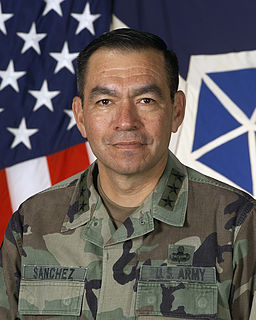A Quote by Keith Kellogg
My experience in decision-making has shown that patterns are tough to break. In the military, we study an opponent, looking for gaps, flaws, or weaknesses that can be exploited. Successful leaders at all levels in all disciplines conduct this kind of analysis.
Related Quotes
Knowing your opponent is a crucial part of emulating and defeating that opponent. But scouting is only the first step. Too many leaders spend countless hours studying an opponent's every move in the search for an edge. The Great Teams understand not only how to scout but also how to exploit the weaknesses of a competitor. These teams analyze every perspective and option and position themselves to take full advantage of any knowledge gained about an opponent.
In the aftermath of the terrorist attacks of September 11, 2001, I watched helplessly as the Bush administration led America into a strategic blunder of historic proportions. It became painfully obvious that the executive branch of our government did not trust its military. It relied instead on a neoconservative ideology developed by men and women with little, if any, military experience. Some senior military leaders did not challenge civilian decision makers at the appropriate times, and the courageous few who did take a stand were subsequently forced out of the service.
In the face of uncertainty, many companies will default to asking their innovators to study and analyze, which can't actually ever provide a definitive answer. The decision-making systems here are meant to deal with the reality that decisions about innovative ideas will rely on patterns and intuitions. The best venture capital organizations deal with this challenge by staging investment, actively participating in startups they fund, tying decisions to learning as opposed to artificial dates on the calendar, and assembling a diverse team of decision-makers.
There are only patterns, patterns on top of patterns, patterns that affect other patterns. Patterns hidden by patterns. Patterns within patterns. If you watch close, history does nothing but repeat itself. What we call chaos is just patterns we haven't recognized. What we call random is just patterns we can't decipher. what we can't understand we call nonsense. What we can't read we call gibberish. There is no free will. There are no variables.


































